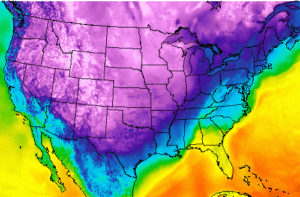by E. Worall, Oct 14, 2020 in WUWT
h/t Dr. Willie Soon / James Delingpole / Breitbart; A group of high profile scientists, including Dr. Willie Soon, have published a meticulously referenced study which discuses the pros and cons of various CO2 reduction strategies.

The abstract of the study:
Energy and Climate Policy—An Evaluation of Global Climate Change Expenditure 2011–2018
by Coilín ÓhAiseadha 1,*, Gerré Quinn 2, Ronan Connolly 3,4, Michael Connolly 3 and Willie Soon 4
1 Department of Public Health, Health Service Executive, Dr Steevens’ Hospital, D08 W2A8 Dublin 8, Ireland
2 Centre for Molecular Biosciences, Ulster University, Coleraine BT521SA, Northern Ireland, UK
3 Independent Scientists, Dublin 8, Ireland
4 Center for Environmental Research and Earth Sciences (CERES), Salem, MA 01970, USA*Author to whom correspondence should be addressed.Concern for climate change is one of the drivers of new, transitional energy policies oriented towards economic growth and energy security, along with reduced greenhouse gas (GHG) emissions and preservation of biodiversity. Since 2010, the Climate Policy Initiative (CPI) has been publishing annual Global Landscape of Climate Finance reports. According to these reports, US$3660 billion has been spent on global climate change projects over the period 2011–2018. Fifty-five percent of this expenditure has gone to wind and solar energy. According to world energy reports, the contribution of wind and solar to world energy consumption has increased from 0.5% to 3% over this period. Meanwhile, coal, oil, and gas continue to supply 85% of the world’s energy consumption, with hydroelectricity and nuclear providing most of the remainder. With this in mind, we consider the potential engineering challenges and environmental and socioeconomic impacts of the main energy sources (old and new). We find that the literature raises many concerns about the engineering feasibility as well as environmental impacts of wind and solar. However, none of the current or proposed energy sources is a “panacea”. Rather, each technology has pros and cons, and policy-makers should be aware of the cons as well as the pros when making energy policy decisions. We urge policy-makers to identify which priorities are most important to them, and which priorities they are prepared to compromise on.
Read more: https://www.mdpi.com/1996-1073/13/18/4839/htm
…
…

